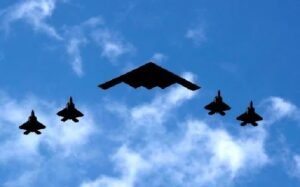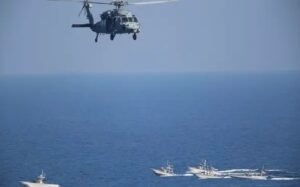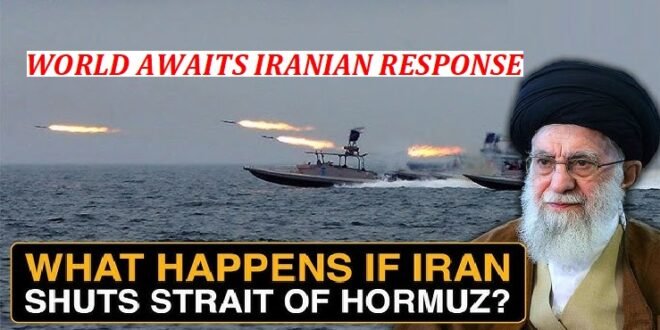23-06-2025
TEHRAN: Iran’s Supreme National Security Council must make the final decision on whether to close the Strait of Hormuz following US bombing raids, Iran’s Press TV said on Sunday, after parliament was reported to have backed the measure.
 Iran has long used the threat of closing the Strait, through which around 20% of global oil and gas demand flows, as a way to ward off Western pressure which is now at its peak after the overnight US strikes on its nuclear facilities.
Iran has long used the threat of closing the Strait, through which around 20% of global oil and gas demand flows, as a way to ward off Western pressure which is now at its peak after the overnight US strikes on its nuclear facilities.
The decision to close the strait is not yet final and it was not officially reported that parliament had in fact adopted a bill to that effect.
Instead, a member of parliament’s national security commission Esmail Kosari was quoted on other Iranian media as saying; “for now, (parliament has) come to the conclusion we should close the Strait of Hormuz, but the final decision in this regard is the responsibility of the Supreme National Security Council.”
Kosari, who is also a Revolutionary Guards Commander, had earlier on Sunday told the Young Journalist Club that closing the strait was on the agenda and “will be done whenever necessary”.
Asked about whether Tehran would close the waterway, Foreign Minister Abbas Araqchi dodged the question on Sunday and replied; “a variety of options are available to Iran.”
The strait lies between Oman and Iran and links the Mideast Gulf north of it with the Gulf of Oman to the south and the Arabian Sea beyond.
It is 21 miles (33 km) wide at its narrowest point, with the shipping lane just 2 miles (3 km) wide in either direction.
However, the world braced on Sunday for Iran’s response after the US attacked key Iranian nuclear sites, joining Israel in the biggest Western military action against the Islamic Republic since its 1979 revolution.
Iran vowed to defend itself a day after the US dropped 30,000-pound bunker-buster bombs onto the mountain above Iran’s Fordow nuclear site while American leaders urged Tehran to stand down and pockets of anti-war protesters emerged in US cities.
 In a post to the Truth Social platform on Sunday, US President Donald Trump raised the idea of regime change in Iran. “It’s not politically correct to use the term, ‘Regime Change’ but if the current Iranian Regime is unable to MAKE IRAN GREAT AGAIN, why wouldn’t there be a Regime change??? MIGA!!!” he wrote.
In a post to the Truth Social platform on Sunday, US President Donald Trump raised the idea of regime change in Iran. “It’s not politically correct to use the term, ‘Regime Change’ but if the current Iranian Regime is unable to MAKE IRAN GREAT AGAIN, why wouldn’t there be a Regime change??? MIGA!!!” he wrote.
Iran and Israel continued to trade volleys of missile attacks. An Israeli military spokesperson said Israeli fighter jets had struck military targets in western Iran. Earlier, Iran fired missiles that wounded scores of people and flattened buildings in Tel Aviv.
The US Department of Homeland Security warned of a “heightened threat environment” in America, citing the possibility of cyber-attacks or targeted violence. Law enforcement in major US cities stepped up patrols with a focus on religious, cultural and diplomatic sites.
The US State Department issued a security alert for all US citizens abroad that warned of the potential for demonstrations against Americans and travel disruptions due to closed airspace across the Middle East, calling on them to “exercise increased caution.”
Tehran has so far not followed through on its threats of retaliation against the United States, either by targeting US bases or trying to choke off global oil supplies but that may not hold.
Speaking in Istanbul, Iranian Foreign Minister Abbas Araqchi said his country would consider all possible responses. There would be no return to diplomacy until it had retaliated, he said. (Int’l Monitoring Desk)
 Pressmediaofindia
Pressmediaofindia




